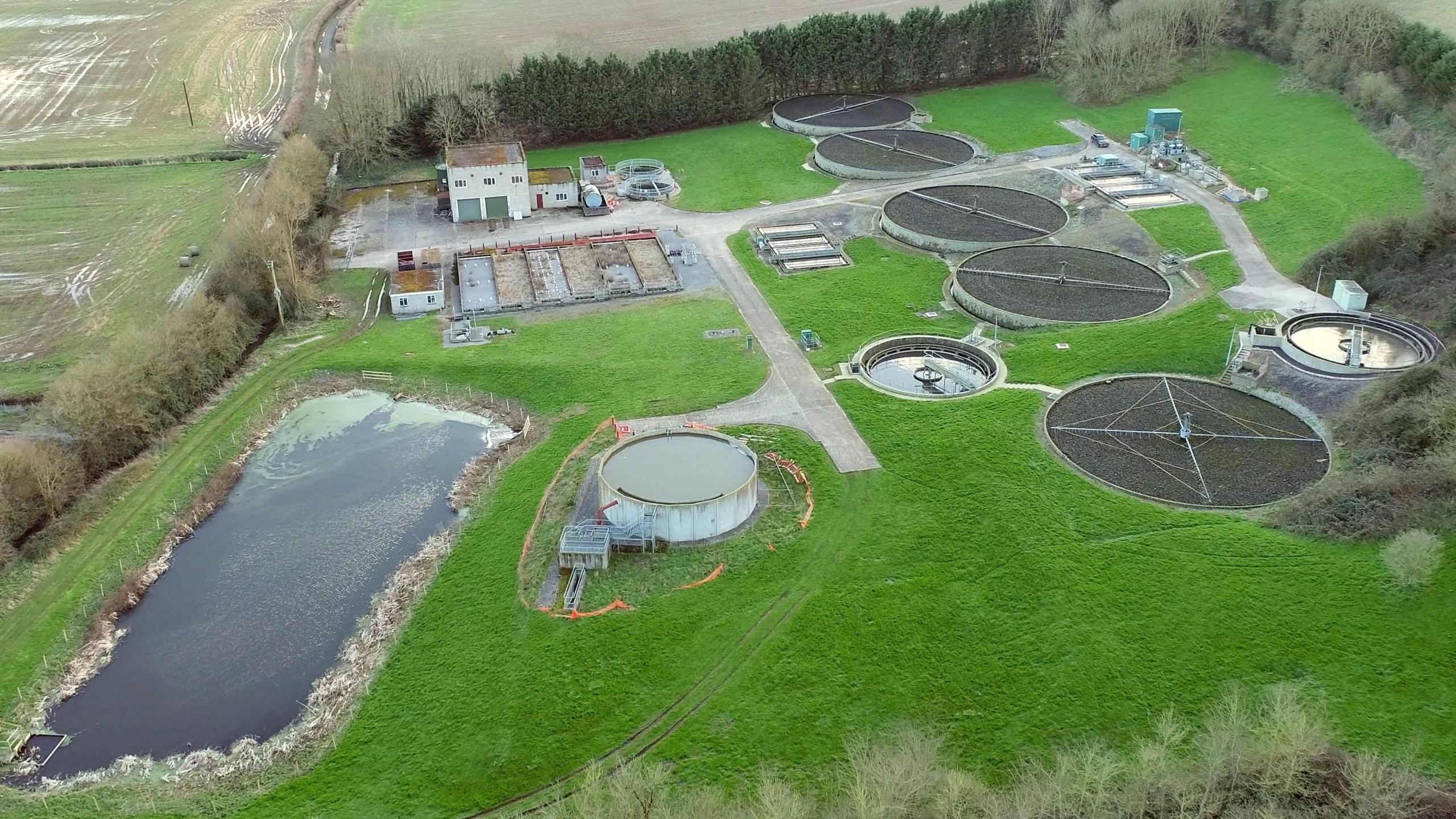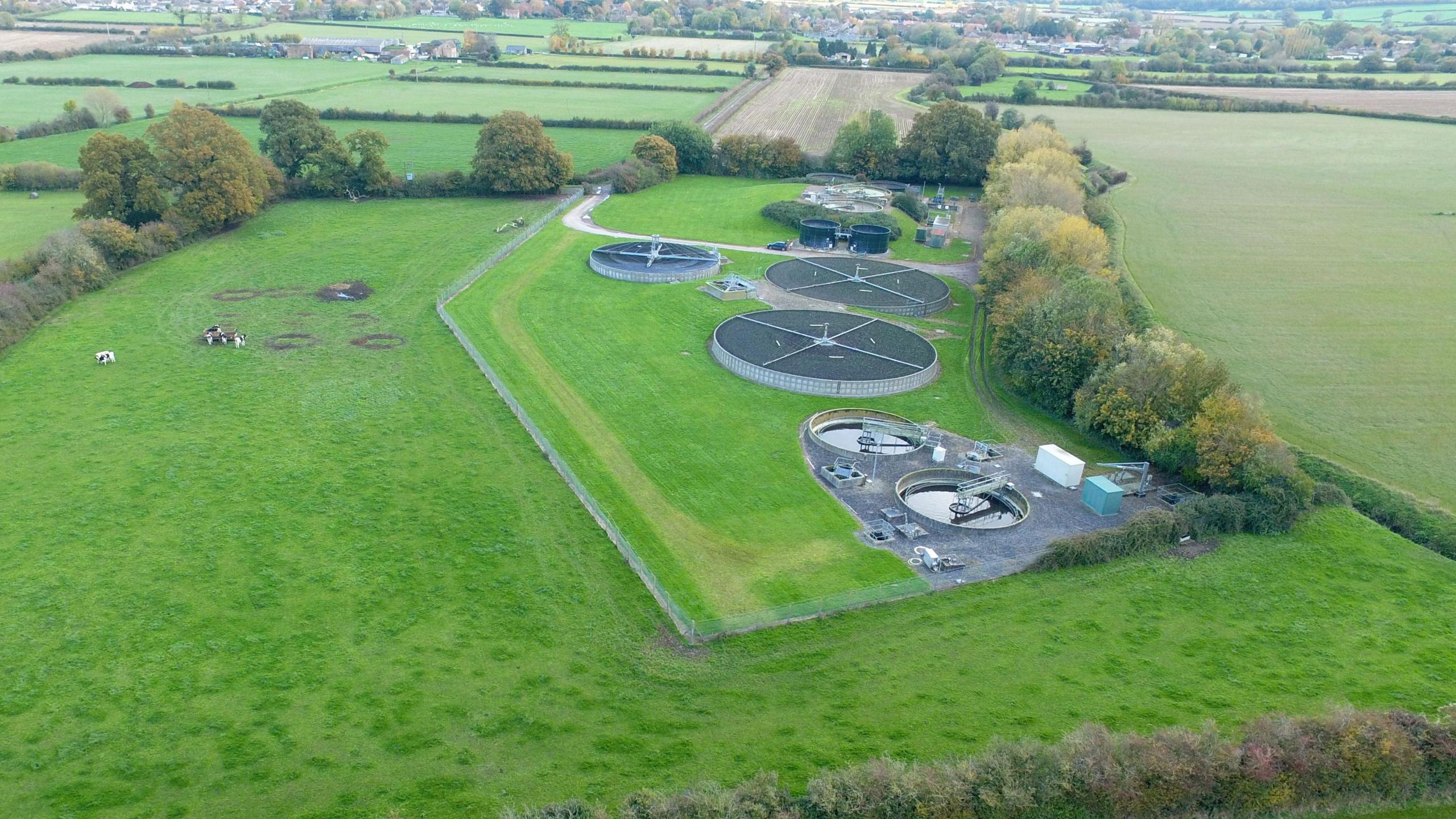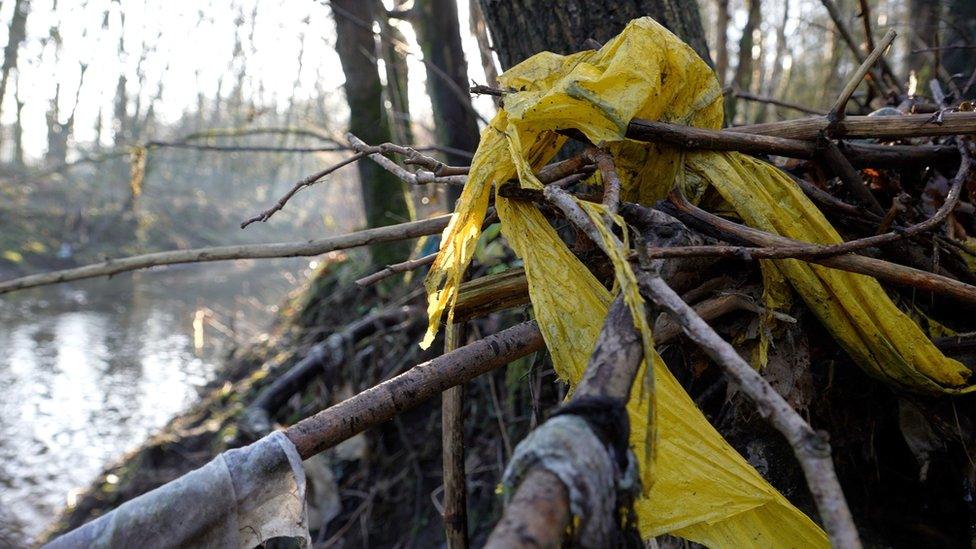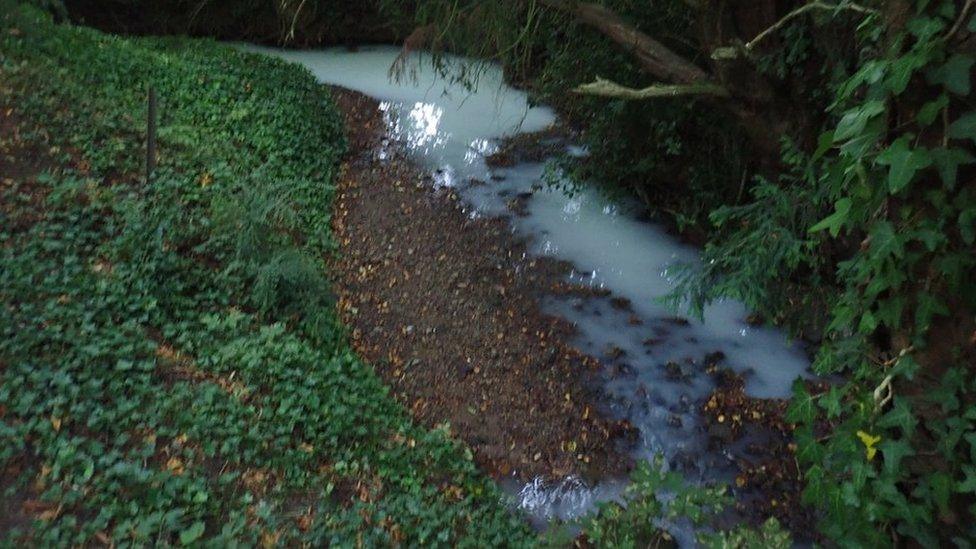Projects to remove chemicals from rivers underway

More than £5m is being invested in the water recycling centre at Somerton
- Published
Four projects to upgrade water recycling centres and help remove chemicals from rivers have been started.
Wessex Water are spending £18m on projects in Somerset to extract household chemicals from rivers that can cause an overgrowth of algae which harms the environment.
The company is spending £7.5m in Martock, £4.5m in Crewkerne, £1m in Merriott and £5m in Somerton.
Rachel Weston, project manager for the Martock and Crewkerne sites, said the increase of chemicals into watercourses are "one of the main challenges" that the water company is facing.

The water recycling centre at Martock is being upgraded as part of a £7.5m investment
She said: “The impact of nutrients on rivers and other watercourses is one of the main challenges we’re tackling within many areas of Somerset and by investing heavily in our sites, we’re fully stepping up to tackle this issue."
Chemicals, such as phosphorus, ammonia and nitrogen that are often found in many household products, can cause excessive growths of algae that have damaging effects on plants and animals in rivers and streams because oxygen in water is depleted as a result – a process known as eutrophication.
High concentrations of nutrients are also found in farm slurries, agricultural fertilisers and septic tanks, Wessex Water said.
Ms Weston added: “By upgrading our water recycling centres, enhancing the processes within them, we can ensure we not only meet our water industry obligations but are also meeting the challenges resulting from an expanding population.
“These projects will help us protect the environment around the county’s many watercourses, including the River Parrett, and ensure that treated wastewater we return to the environment is of the highest quality.’’
Work at all four sites got under way this autumn and is expected to continue for around a year.
The work is in addition to projects being carried out by Wessex Water on the River Parrett and in North Petherton.
The water company has proposed a commitment of more than £900m towards stripping out chemicals from wastewater as part of around £3.5bn of new investment between 2025 and 2030.
- Published4 April 2022

- Published13 November 2023

- Published14 September 2023
